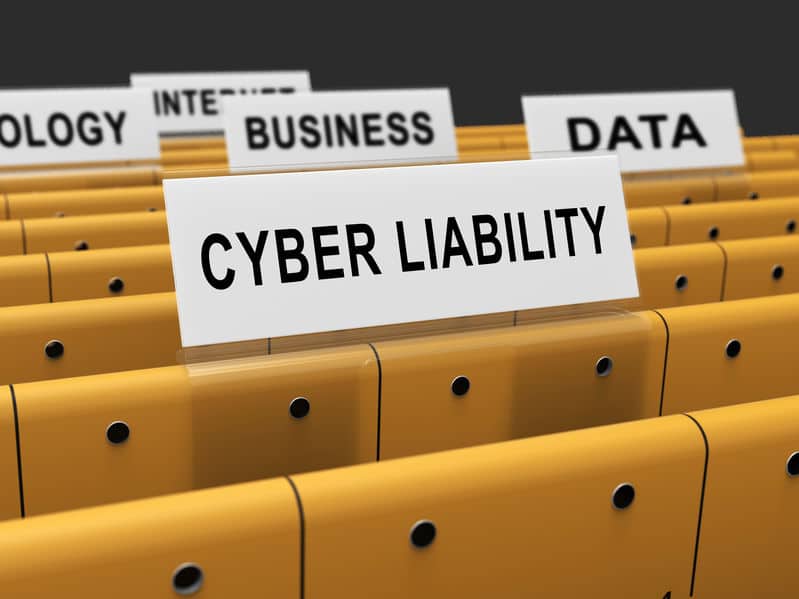What is Cyber Liability Insurance?
From the ever present risk of ransomware to the rising number of phishing attacks, many companies today are turning to cyber liability insurance to reduce their exposure, cover their losses and keep their profits rolling in.
As a small, mid-sized or enterprise level business in the greater Milwaukee area, it’s likely you have other types of insurance coverage, but with threats like ransomware looming over your business, have you considered cyber liability insurance as well?
Cyber liability insurance is a specialized product designed to protect businesses from internet-based risks, including the threat of cyber crime and phishing attacks.
Is it Necessary?
It was not that long ago that this type of insurance was a relatively unknown product, but the growing risk of cyber crime and its increasing sophistication has caused many businesses to take a second look. If you collect payments for online sales, a data breach could expose your organization to damages and cyber liability insurance could help to minimize those damages.
Cyber liability insurance is also beneficial for businesses who:
- Maintain a database that contains personal information.
- Store sensitive data like Social Security numbers or medical records.
- Rely heavily on technology for their daily operations.
- Are located in one of the 46 states with mandatory data breach notification laws in place.
Cyber policies are not standardized, so they vary widely. As with other types of insurance coverage, this largely depends on the details of the policy and what you are willing to pay.
Learn 15 ways to protect your business from a cyber attack
What Does Cyber Liability Insurance Cover?
Cyber liability insurance can be a valuable addition to business insurance products, but it is important to understand what this specialty insurance does and does not cover.
Begin by asking yourself what you want to cover. The cost of coverage depends on your policy, but in general, these policies offer protection against:
- Remediation expenses: Cyber insurance coverage may include expenses incurred while remedying or managing a cyber invasion including investigatory costs, legal fees and court costs.
- Reimbursement: Cyber risk insurance can offer reimbursement for fines incurred as a result of the data security breach as well as the cost of hiring a PR agency to manage the reputational fallout.
- Media issues: Coverage might also include media related issues such as infringement of intellectual property (IP), slander and defacement of websites and other online properties.
- Theft: Costs associated with the theft of third party data, including expenses associated with denial of access attacks. This might also include loss of physical records as well as theft of business devices.
- Professional fees: Liability coverage can include professional fees incurred when dealing with cyber extortion attempts, including ransomware attacks.
- Ransom payment: Cyber liability insurance covers claims of ransom payments to resolve a ransomware attack and get the business up and running.
What Do You Have to Do to Qualify for Cyber Liability Insurance?
Cyber liability insurance can be a smart purchase, especially in the age of rising cyber crime, rampant ransomware attacks and the increasing sophistication of phishing attacks.
In order to qualify and maintain cyber liability coverage, businesses must exercise due diligence in keeping their data, customers, employees and their networks safe. Again, specific requirements depend on the details of the policy, but requirements typically include:
- Engaging in security awareness training, including exercises related to phishing attacks and other online dangers.
- Sound password practices such as minimum complexity requirements for online credentials and frequent password changes.
- Regular backup creation and testing. Proper backups can stop a ransomware attack in its tracks so a solid data backup and recovery plan is often a mandatory requirement for cyber liability insurance.
Are Ransomware Attacks Really Increasing or Are They Just Getting More Visibility in the News?
While some might speculate whether ransomware attacks are truly on the rise, this is due more to an uptick in actual cyber events and attacks rather than an overenthusiastic news media. With tens of thousands of ransomware attacks in a single year, cyber extortion is indeed on the rise, and a single leak of credit card numbers or a breach in network security could have devastating consequences for your business.
What is Not Covered?
While this type of insurance can be a valuable form of protection for your business, it is not a magic bullet. Even the most generous cyber liability insurance policies do not cover every possible expense and it is important to understand – and plan for these exclusions.
Cyber liability coverage typically does not cover:
- Damages related to harm of your business reputation
- The cost of risk mitigation, including cyber security services
- Loss of first party intellectual property (IP)
- The loss of future revenue attributable to the data breach
- Errors and omissions (E&O) claims
Cyber liability insurance coverage can provide valuable protection in an increasingly dangerous online world.
If a business interruption in operations would be costly, you should definitely consider adding cyber risk insurance to cyber security plan along with proactive steps like managed security.
If your greater Milwaukee area organization has questions about cyber liability insurance, speak with your insurance associate. If you don’t have a provider, call Ontech Systems for a recommendation at 262-522-8560 or reach us online.






